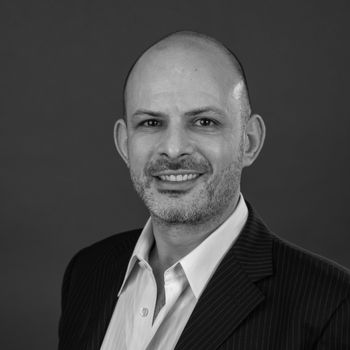PROF GIORDANO: Why the private sector is ditching college degrees
The shift away from degree requirements represents a failure of our institutions, and it indicates that these institutions are not producing graduates with the necessary skills to compete and function in the workplace.
Nicholas Giordano is a professor of Political Science, the host of The P.A.S. Report Podcast, and a fellow at Campus Reform’s Higher Education Fellowship. With 2 decades of teaching experience and over a decade of experience in the emergency management/homeland security arena, Professor Giordano is regularly called on to speak about issues related to government, politics, and international relations.
Walmart’s announcement that it will drop 4-year degree requirements for corporate positions provides further evidence that higher education continues to push itself toward irrelevancy. They join a growing list of companies that are doing the same, including Google, IBM, Bank of America, Delta Airlines, and more. Additionally, several states are also moving away from mandating college degrees for specific jobs.
The shift away from degree requirements is a harsh rebuke of higher education. It represents a failure of our institutions, and it indicates that these institutions are not producing graduates with the necessary skills to compete and function in the workplace. This sentiment is not isolated to just a handful of employers as a Gallup survey found that “Only 11% of business leaders said they believed college graduates were well prepared for the workforce.”
As employers, parents, and students reevaluate the worth of a college degree, we must confront the decades-long systemic issues plaguing our educational institutions. Higher education’s decline is rooted in the nationwide collapse of learning standards. This starts in the K-12 system, permeates into higher education, and ultimately affects the entire society.
For far too long, students have been cycled through a failed public education system with the overwhelming majority unable to achieve at or above the National Assessment of Educational Progress (NAEP) proficiency levels in all subject areas. As a professor, I can personally attest to the decline in the students’ quality of work over my 18-year career. Writing abilities have collapsed. Many students struggle to organize their thoughts, articulate their arguments, and adhere to simple grammatical rules. They come into my classroom unable to pass a citizenship exam and do not know the basic structure of our government.
[RELATED: PROF GIORDANO: Biden’s SAVE Plan is another ‘too big to fail’ bailout]
As a result, 68% of students entering a two-year public institution and 40% of students enrolled in a four-year public university are required to take remedial classes. Despite these failures, student grade point averages continue to increase as grade inflation and equitable grading systems have infected the entire system. Most parents would be shocked to learn that many 12th-grade textbooks are written at the 7th or 8th-grade level, leaving them woefully unprepared for college.
Even worse, officials have little faith in the student body as evidenced by the NYS Board of Regents lowering the bar even further after students performed twice below the national average on tests. Rather than raise the bar, officials redefined the definition of proficiency to reflect what they deem the “new normal.” These actions undermine merit, dilute the importance of effort, and compromise the quality of education.
In conjunction with the drop in standards, the mindset of some teachers has morphed. To compensate for their diminished command over the material they infuse their ideology. This has transformed both public and higher education from incubators of critical thinking and personal growth to breeding grounds that prioritize indoctrination and a far-left political agenda.
[RELATED: PROF GIORDANO: The far-reaching consequences of radical indoctrination]
The best example can be found in higher education where a large number of institutions have added Diversity, Equity, Inclusion, and Social Justice (DEISJ) to their degree requirements regardless of major. I warned how continuing down this path would render higher education meaningless. The shift in focus, from academia to ideological propaganda, has led to far too many students who are unable to think critically and problem-solve. Employers prefer to hire competent, productive employees, not mindless political activists, so it is not surprising why companies like Walmart are ditching college degree requirements.
I refuse to stay silent as my profession decimates itself through a number of self-inflicted wounds. As professors with a deep commitment to education, it is our duty to raise awareness if we want higher education to survive. This is the primary reason I joined Campus Reform as a higher education fellow. Implementing reforms is necessary to produce graduates equipped with the skills, knowledge, and competency that once defined higher education.
We have to commit to higher standards, not lower ones if we want to fix the broken system. We must encourage and challenge students to reach their full potential and prepare them for the demands of a competitive and evolving workforce. We must reestablish the ideals of intellectual diversity. Diversity of thought fosters critical thinking and strengthens our nation. These reforms are pivotal in producing well-rounded, capable individuals ready for real-world success.
For me, education was a transformative force that opened doors to opportunities I could never have imagined, and I want the younger generation afforded the same experience. Beyond personal anecdotes, the state of education serves as a litmus test for the health of a nation. A failing education system is the greatest indicator of a nation in decline. A robust education system propels our nation forward and drives progress leading to a more prosperous nation for all.
Editorials and op-eds reflect the opinion of the authors and not necessarily that of Campus Reform or the Leadership Institute.

